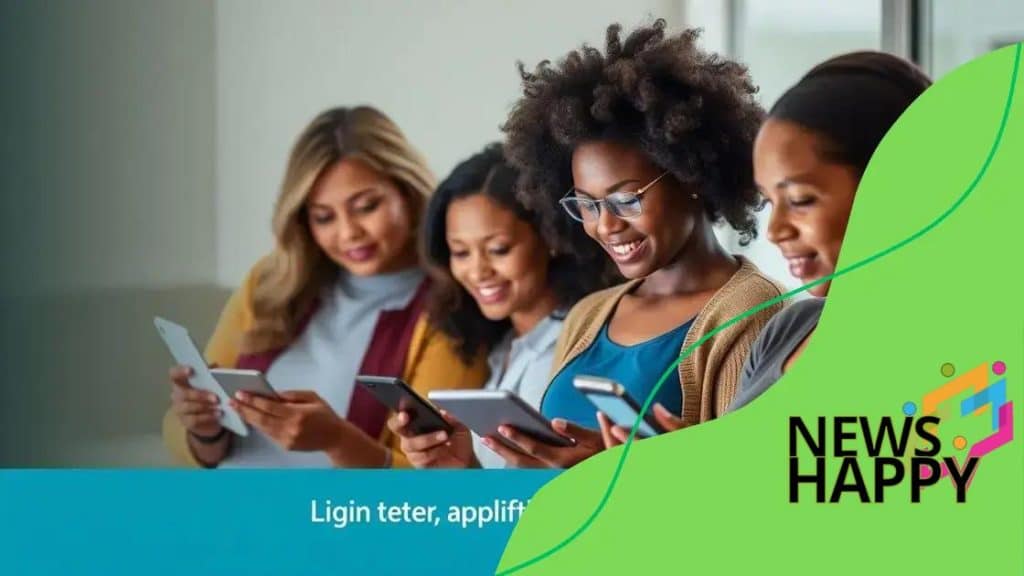The growing importance of digital literacy in benefits application

Anúncios
The growing importance of digital literacy in benefits application is crucial as it enables individuals to effectively navigate online platforms, access vital information, and improve their personal and professional opportunities.
The growing importance of digital literacy in benefits application cannot be overstated. In today’s fast-paced world, having the skills to navigate online platforms is crucial. Have you ever found yourself frustrated while filling out forms or accessing information online? This article dives into why embracing these skills matters.
Anúncios
Understanding digital literacy
Understanding digital literacy is essential in today’s technology-driven world. It encompasses the ability to locate, evaluate, and utilize information effectively through digital platforms. As we engage more with online services, mastering these skills becomes increasingly important.
What is Digital Literacy?
Digital literacy goes beyond just knowing how to use a computer. It involves a wide range of skills that enable individuals to interact with technology efficiently. This includes everything from basic computer skills to more complex tasks like managing online privacy and security.
Key Components of Digital Literacy
- Information Literacy: Understanding how to find and evaluate information.
- Technical Skills: Proficiency with devices and software.
- Communication Skills: Using digital tools to effectively communicate and collaborate.
- Social and Ethical Awareness: Recognizing the impact of one’s digital actions on society.
Moreover, digital literacy is vital for navigating various systems, including applying for benefits. Individuals who are more literate can fill out forms correctly, access vital information, and use online resources to their advantage. This ability can significantly reduce frustrations and errors during the application process.
Anúncios
As digital platforms evolve, maintaining digital literacy means continuous learning. Whether through formal education or self-directed study, enhancing these skills is crucial for everyone, especially those seeking benefits and services online. By understanding the principles of digital literacy, individuals can ensure they are prepared for any challenge that digital environments present.
Key benefits of digital literacy
The key benefits of digital literacy are vital in today’s world. When individuals possess strong digital skills, they can navigate online platforms with ease. These skills not only enhance personal effectiveness but also improve overall quality of life.
Improved Access to Information
One significant advantage is improved access to information. Being digitally literate allows individuals to find accurate information quickly. This skill can lead to better decision-making and more effective solutions to problems.
Increased Job Opportunities
Moreover, employers today seek candidates with strong digital literacy. Job descriptions often list these skills as essential. Individuals who can demonstrate proficiency in technology are more likely to secure employment and advance in their careers.
- Understanding of software applications.
- Ability to communicate via digital platforms.
- Familiarity with online research methods.
- Capacity to collaborate effectively in virtual teams.
Additionally, digital literacy fosters empowerment. When people feel confident using technology, they are more inclined to participate in online communities and discussions. This engagement can lead to building new relationships and opportunities.
Another critical benefit of digital literacy is enhanced problem-solving capabilities. Skills in using digital tools can simplify tasks, making everyday life more manageable. From online banking to grocery shopping, digital literacy transforms mundane activities into efficient processes.
Challenges in achieving digital literacy

Challenges in achieving digital literacy can impact individuals and communities. While technology is widely available, not everyone can engage effectively with it. Many barriers exist that hinder people from becoming digitally literate.
Access to Technology
One of the biggest obstacles is access to technology. Many people do not own devices or have reliable internet connections. This lack of access can create a digital divide, where some are left behind in an increasingly digital world.
Lack of Training and Resources
Additionally, there is often insufficient training and resources available. Community programs may not offer the skills needed to use technology effectively. Many people feel overwhelmed and unsure where to start their learning process.
- Complexity of digital tools can intimidate newcomers.
- Limited availability of relevant training programs.
- Fear of making mistakes online.
- Inadequate support systems for learners.
Moreover, there is a gap in confidence among individuals. Those who struggle with technology may feel embarrassed, leading to avoidance. This mindset can stifle motivation and prevent progress toward achieving digital literacy.
The pace of technological change also poses a significant challenge. New tools and platforms emerge constantly, making it hard to keep up. People may find it difficult to master one system before another replaces it. This constant evolution can lead to frustration.
Strategies to enhance digital literacy skills
Strategies to enhance digital literacy skills are essential for anyone looking to thrive in a digital world. Creating a strong foundation can help individuals feel more comfortable and confident when using technology.
Participation in Workshops
One effective method is participation in workshops. Many community centers and libraries offer free classes to help people learn the basics of technology. These workshops provide hands-on experience, making it easier to grasp new concepts.
Online Learning Platforms
Additionally, online learning platforms offer valuable resources. Websites like Khan Academy and Coursera provide courses specifically focused on digital skills. Individuals can learn at their own pace, which is an excellent way to build knowledge.
- Tutorials on software applications and tools.
- Video lessons that explain complex topics simply.
- Opportunities to practice new skills in a safe environment.
- Access to forums for asking questions and getting help.
Moreover, engaging with peers can greatly enhance learning. Joining local or online groups that focus on digital literacy allows individuals to share experiences and techniques. Collaborating with others creates a supportive environment where everyone can learn from one another.
Another strategy is setting realistic goals. Starting with small, achievable targets can help build confidence. For example, individuals can aim to learn one new tool or feature each week. Over time, these small successes accumulate, leading to greater overall proficiency.
The future of digital literacy in applications
The future of digital literacy in applications is bright and promising. As technology continues to advance, the skills needed to navigate digital platforms are becoming increasingly essential. In the coming years, individuals will need to adapt to new tools and applications that enhance their daily lives.
Continuous Evolution of Technology
New technologies will likely emerge that change how we interact with digital services. Individuals must stay informed about these developments. This evolution will require an ongoing commitment to learning and adapting. The rapid pace of innovation will drive the importance of maintaining strong digital literacy skills.
Increased Integration into Daily Life
Additionally, as more applications become integrated into everyday tasks, digital literacy will be vital. Routine activities such as shopping, banking, and healthcare increasingly rely on technology. Learning to use these applications will help individuals navigate the complexities of modern life.
- Growth of smart devices and applications.
- Enhanced user experiences through AI technology.
- Greater reliance on digital communication.
- Opportunities for remote work and learning.
Moreover, organizations will play a crucial role in promoting digital literacy. Businesses will need to invest in training for their employees to keep pace with technological changes. This shift will also benefit organizations, as a digitally literate workforce can lead to increased productivity and innovation.
Educational institutions will adapt their curricula to include more focused digital skills training. Schools and universities will prepare students for a future where digital literacy is a fundamental requirement for success. As digital skills become more integrated into education, we can expect future generations to be better equipped to handle technology.
In conclusion, embracing digital literacy is crucial for navigating the evolving technology landscape. As new tools and applications emerge, being digitally literate empowers individuals to make informed decisions, access vital services, and thrive in both personal and professional environments. Communities, organizations, and educational institutions play significant roles in fostering these skills. Together, we can create a future where everyone is equipped with the knowledge needed to succeed in a digital world.
FAQ – Frequently Asked Questions about Digital Literacy
Why is digital literacy important for today’s society?
Digital literacy is essential because it empowers individuals to access information, communicate effectively, and participate fully in the digital economy.
What are some strategies to improve digital literacy skills?
Strategies include attending workshops, taking online courses, practicing with technology, and participating in community programs focused on digital skills.
How can organizations support digital literacy in their workforce?
Organizations can provide training programs, resources, and access to technology to help employees develop and enhance their digital skills.
What challenges do individuals face in achieving digital literacy?
Challenges include lack of access to technology, insufficient training resources, and the rapid pace of technological change that can be intimidating for learners.





